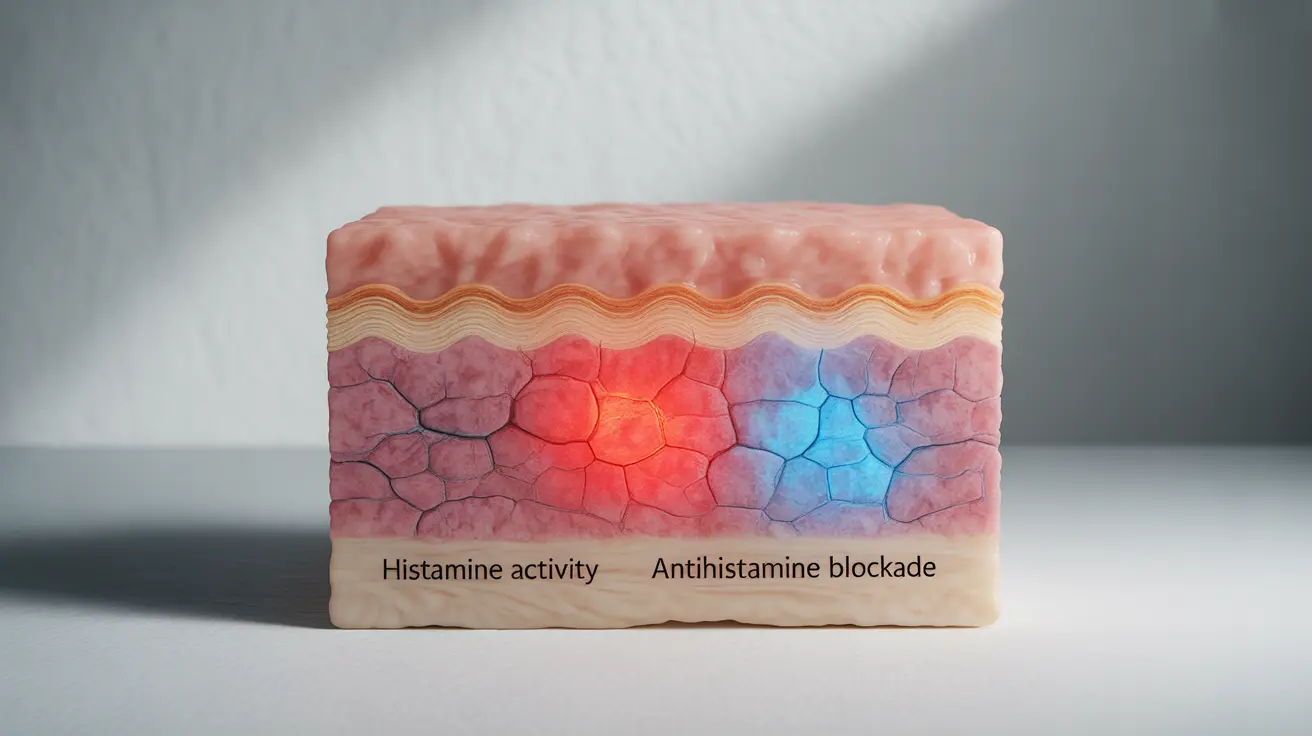Living with eczema can be challenging, especially when dealing with persistent itching that affects your quality of life. While antihistamines aren't a primary treatment for eczema, they can play a valuable role in managing symptoms, particularly when itching interferes with sleep or when allergies trigger flare-ups. Understanding how different types of antihistamines work can help you make informed decisions about their use in your eczema management plan.
Understanding the Role of Antihistamines in Eczema Management
Antihistamines work by blocking histamine, a chemical that triggers allergic responses and inflammation in the body. While they don't treat the underlying cause of eczema, they can help relieve itching and prevent scratch-induced skin damage, especially during nighttime flare-ups.
Types of Antihistamines for Eczema Relief
First-Generation (Sedating) Antihistamines
These older antihistamines are known for their sedating properties, making them particularly useful for nighttime itch relief:
- Diphenhydramine (Benadryl)
- Hydroxyzine (Atarax, Vistaril)
- Chlorpheniramine
These medications can help improve sleep quality during eczema flares but may cause daytime drowsiness if taken in the morning.
Second-Generation (Non-sedating) Antihistamines
Modern antihistamines provide allergy relief with minimal drowsiness:
- Cetirizine (Zyrtec)
- Loratadine (Claritin)
- Fexofenadine (Allegra)
These options are better suited for daytime use when alertness is necessary.
When to Consider Antihistamines
Antihistamines may be particularly beneficial in the following situations:
- During severe itching episodes
- When allergic triggers worsen eczema symptoms
- For nighttime relief when itching disrupts sleep
- As part of a comprehensive treatment plan including topical medications
Maximizing the Benefits of Antihistamine Use
To get the most benefit from antihistamines for eczema management:
- Take sedating antihistamines 30-60 minutes before bedtime
- Use non-sedating options for daytime symptom control
- Maintain consistent timing with daily doses
- Combine with proper skin care and prescribed eczema treatments
- Consult healthcare providers about long-term use
Frequently Asked Questions
What is the best antihistamine for relieving itching caused by eczema?
For nighttime relief, hydroxyzine and diphenhydramine are often most effective due to their sedating properties. For daytime use, cetirizine or fexofenadine may be better options as they cause less drowsiness while still helping with itch control.
Can antihistamines help improve sleep in people with eczema who have nighttime itching?
Yes, sedating antihistamines can significantly improve sleep quality by reducing nighttime itching and helping patients fall asleep more easily. First-generation antihistamines are particularly effective for this purpose.
How do sedating and non-sedating antihistamines differ in managing eczema symptoms?
Sedating antihistamines provide stronger itch relief and help with sleep but can cause drowsiness and cognitive impairment. Non-sedating antihistamines offer more modest itch relief without significant drowsiness, making them suitable for daytime use.
Are antihistamines effective as a primary treatment for eczema or only as an add-on therapy?
Antihistamines work best as an add-on therapy rather than a primary treatment. They help manage symptoms, particularly itching, but don't address the underlying inflammation that causes eczema. They should be used alongside proper skin care and prescribed treatments.
When should someone with eczema consider using antihistamines, and which types are recommended for allergy-related eczema?
Consider antihistamines when itching significantly impacts quality of life or sleep, or when allergies trigger eczema flares. For allergy-related eczema, second-generation antihistamines like cetirizine or fexofenadine are recommended for daily use, while first-generation options may be better for nighttime symptom control.




